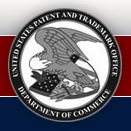Apple has been granted several patents today by the US Patent & Trademark Office. Following is a summary of each.
Patent number 7,965,498 is for a cover glass to housing an interface system — the iMac’s edge-to-edge glass cover. Todd Gotham, Shin Nishibori, Christopher Stringer, Michael McBroom, Daniel McBroom, Brian Sudderth and John Ternus are the inventors.
Patent number 7,963,809 is for a MicroDVI connector which is probably the Mini DisplayPort. The inventors are Dave Hardell Glen Wheelock, Chris Ligtenberg, Steve Sfarzo, William Cornelius and Bartley Andre.
Patent number 7,966,578 is for a portable, multifunctional device, method and graphic user interface for translating displayed content. Think iPhone. Francisco Ryan Tolmasky, Richard Williamson, Chris Blumenberg, and Patrick Coffman are the inventors.
Patent number 7,966,577 is for a multimedia control center– Front Row and the Apple Remote for the Mac. Imran Chaudhri, Thomas Madden, Scott Forstall, Duncan Kerr, Nick King, Stephen Lemay, Richard Fabrick II, Bas Ording, Eric Seymour and Marcel van Os are the inventors.
Patent number 7,965,495 is for battery connector structures for electronic devices. Per the patent, a portable computer is provided that has a housing. A removable battery may provide power to the portable computer. A connector on the battery may mate with a corresponding battery connector in the portable computer housing. The battery connector may be mounted in the portable computer housing using a floating arrangement. This allows the position of the connector to move slightly to accommodate variations in the position of the battery. A cable may be used to route power between the battery and a main logic board. A cover may be used to hold the battery connector and cable to the housing of the portable computer without excessively impeding movement of the connector. The inventors are Keith J. Hendren, Daniel J. Coster, John Brock, Michelle Rae Goldberg, Dinesh Mathew, Chris Ligtenberg, Hank D. Ching and Glenn E. Wheelock.
Patent number 7,966,428 involves control of electronic devices based on capability descriptions. According to one described aspect, an embodiment of a method includes providing a plurality of schemes, each scheme defining features that are operable on an electronic device and which features each of the features in the scheme can use, and receiving data for identifying the type of the electronic device, and selecting, based on the type, one of the schemes, and controlling the electronic device based on the selected scheme. Julien Jacques Jalon is the inventor.
Patent number 7,966,362 is for the management of podcasts. Improved techniques that facilitate the use of podcasts are disclosed. The improved techniques can pertain to publishing, hosting, accessing, subscribing, managing, organizing, searching, browsing, transferring, and/or playing podcasts. According to one aspect, tags are embedded into syndication feeds (e.g., RSS feeds) that may be made available for distribution by an online media store to facilitate the management of podcasts. Such tags can include a block tag that may be embedded into a syndication feed to indicate whether the feed is to be blocked from being included in the online media store. According to another aspect, management of podcasts may be facilitated by other mechanisms. In accordance with one embodiment, a user may challenge the ownership of a podcast to block or remove a podcast from the online media store. In accordance with another embodiment, images may be stored to allow efficient retrieval of the corresponding episode(s) of a podcast. The inventors are David Lawrence Neumann, Anne Jones, Mike Wiese and David Heller.
Patent number 7,966,299 involves a persistent state database for operating system services. Per the patent, a A database is used to store user interface state information. The database is accessed by a key having a service ID field, a caller ID field, and a caller context ID field. The caller context ID is used to identify the context in the application program from which the user interface is called. In this manner, the system can differentiate between calls from different portions of the application program which can have different user expectations of the desirable user interface state. Yan Arrouye, Sean J. Findley and Keith L. Mortensen are the inventors.
— Dennis Sellers

